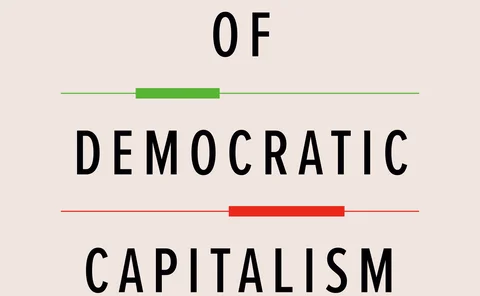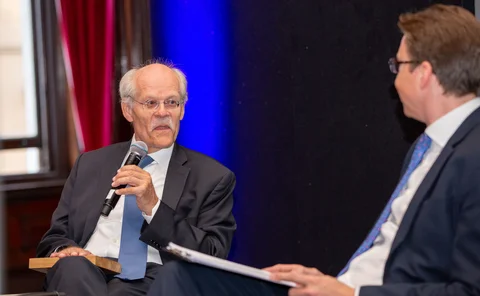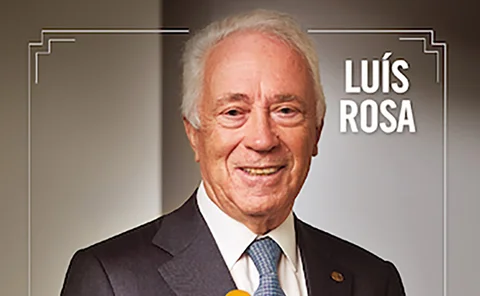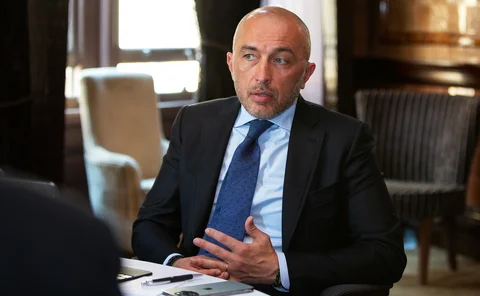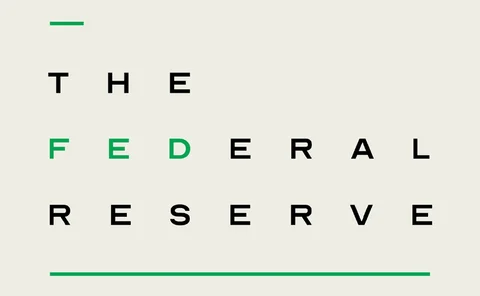Central Banking Journal
Book notes: The crisis of democratic capitalism, by Martin Wolf
A sincere attempt to explain and fix the failing of capitalism in liberal democracies
Book notes: Inflation targeting and central banks, by Joanna Niedźwiedzińska
A useful and rich reference source, especially for central banks moving to adopt inflation targeting
Stefan Ingves on central bank failings on inflation and financial stability
The Riksbank veteran speaks about liquidity, interest rate and non-bank regulatory reforms, the importance of saying ‘no’, and the need for explicit legal definitions for digital money
Climate change: a new financial risk for central banks
Overcoming ‘analysis paralysis’ and the lessons in capturing climate-related financial risks on the Deutsche Bundesbank’s balance sheet
Book notes: Forks in the road, by C Rangarajan
A memoir by one of India’s most distinguished governors, who presided over critical policy issues such as the 1990s’ balance-of-payments crisis
Guillermo Avellán on BCE independence, capacity-building and dollarisation
Central Bank of Ecuador general manager speaks about the need to bolster the central bank’s legal autonomy, dollarisation challenges, payments developments and monetising local gold production
Book notes: O Governador, by Luis Rosa
Documents Carlos Costa’s clashes with Portugal’s elite during the eurozone sovereign debt and banking crisis
Senad Softić on governance, currency boards and EU convergence challenges
Central Bank of Bosnia and Herzegovina governor speaks about improving governance in a political vacuum, managing a currency board amid rip-sawing euro rates, resolving Gazprom’s local units, modernising payments and meeting EU convergence criteria
Ukraine’s governor on central banking in wartime
Andriy Pyshnyy talks about macroeconomic stability, running banks under missile attack, winning IMF aid and post-war reconstruction plans
Book notes: Labor in the age of finance, by Sanford M Jacoby
A fascinating attempt to document the US labour movement’s efforts to use pension fund money to bolster its voice
RBI’s Shaktikanta Das on financial sector reform, sticking to inflation targets and the e-rupee
The Reserve Bank of India governor speaks about developing credible self-insurance and sizeable FX reserves, inter-dependence with government, non-bank and bank regulatory reforms, demonetisation, rupee internationalisation and daily UPI payments hitting…
BoJ’s easing stance fuels yen undervaluation dilemma
Japanese policy-makers need to consider feedback loop that an undervalued yen has on cost-push inflation; reflect on YCC exit options in ‘broad perspective review’, writes Sayuri Shirai
Rule-setters need to heed their own advice
The US risks a reputation for failing to meet standards to which it holds others
Banknotes: April to June 2023
A round-up of news and salient issues that have affected central bankers in the past three months
To govern well, manage ‘enterprise’ risk
Effective risk management should be governance-oriented and top-down; not operationally oriented and bottom-up, writes John Mendzela
People: April to June 2023
A round-up of central bankers in the news and on the move during the past three months
Book notes: The Federal Reserve: a new history, by Robert L Hetzel
This book should become the standard reference for scholars
The allure of private markets
SWFs have piled into the asset class while reserve managers remain wary, writes Blake Evans-Pritchard
IMF’s Adrian on the systemic threat posed by a ‘weak tail’ of financial institutions
The IMF’s financial counsellor speaks to Christopher Jeffery about bank runs and emergency interventions, market and oversight failings, and the need for action on run rate assumptions, interest rate risk, deposit insurance, crypto regulation and a ‘weak…
Another financial crisis hiding in plain sight
Steve Kamin analyses how the risks that sank SVB were plain enough to those who looked for them
Book notes: States and the masters of capital, by Quentin Bruneau
Chronicling the practices and players involved in privately financed sovereign debt
Book notes: The rise of central banks, by Leon Wansleben
The books is at its best when the author focusses on sociological angles related to central bank economics
Book notes: The big con, by Mariana Mazzucato and Rosie Collington
The authors highlight that the excessive pursuit of efficiency results in ineffective government agencies
Central bank negative equity: a risk governance perspective
Janet Cosier explains how risk planning, recapitalisation and transparency are key as central banks incur financial losses
